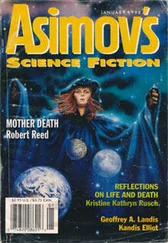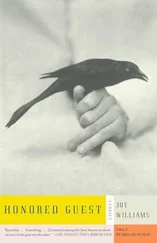Joy Williams - Taking Care
Здесь есть возможность читать онлайн «Joy Williams - Taking Care» весь текст электронной книги совершенно бесплатно (целиком полную версию без сокращений). В некоторых случаях можно слушать аудио, скачать через торрент в формате fb2 и присутствует краткое содержание. Год выпуска: 2010, Издательство: Vintage, Жанр: Современная проза, на английском языке. Описание произведения, (предисловие) а так же отзывы посетителей доступны на портале библиотеки ЛибКат.
- Название:Taking Care
- Автор:
- Издательство:Vintage
- Жанр:
- Год:2010
- ISBN:нет данных
- Рейтинг книги:5 / 5. Голосов: 1
-
Избранное:Добавить в избранное
- Отзывы:
-
Ваша оценка:
- 100
- 1
- 2
- 3
- 4
- 5
Taking Care: краткое содержание, описание и аннотация
Предлагаем к чтению аннотацию, описание, краткое содержание или предисловие (зависит от того, что написал сам автор книги «Taking Care»). Если вы не нашли необходимую информацию о книге — напишите в комментариях, мы постараемся отыскать её.
Taking Care — читать онлайн бесплатно полную книгу (весь текст) целиком
Ниже представлен текст книги, разбитый по страницам. Система сохранения места последней прочитанной страницы, позволяет с удобством читать онлайн бесплатно книгу «Taking Care», без необходимости каждый раз заново искать на чём Вы остановились. Поставьте закладку, и сможете в любой момент перейти на страницу, на которой закончили чтение.
Интервал:
Закладка:
Jim turned to her, shifting into second. “I didn’t say anything, love.”
She noticed that he was wearing a bright blue shirt, suitable for color broadcast.
In town they had lunch together and she went shopping while he taped interviews with cabinet members at the state-house. The day was cloudy and people walked fiercely down the sidewalk, three abreast. In the window of a toy store was a wooden man. There were beggars in the streets, small boys with trays of boiled peanuts, girls behind tables selling cakes. Outside a grocery, a blind man sat crosslegged on a mat, a round brown and white dog leashless by his side gripping a child’s plastic bucket in its mouth. The man’s eyes looked like clots of boiled grits. The bucket was half full of coins. Lola lingered in front of them, her fingers moving nervously across her throat. The dog glanced mildly at her, the bucket unmoving in the slick, stern jaws. The blind man seemed asleep. Lola patted the dog swiftly on the head and walked away without opening her pocketbook. Later, she thought worriedly that the man might not have been blind at all.
She bought some blouses and a potted plant and returned to the capitol where she waited for Jim in a basement coffee shop. Instead of staircases, there were wide ramps leading to the floor above and the halls smelled damp and peculiar, an odor of disinfectant, airlessness and the rotting canvas of coiled fire hoses. There were machines dispensing tuna sandwiches, combs, coffee and nylon stockings, and over it all was the rattle and rap of the pressmen’s Telex machines and typewriters.
She put her packages in a corner booth and ordered a soft drink. A young man with a withered arm brought it cautiously to her in a paper cup. There was a black speck making its way through the ice cubes. Lola put a napkin over the cup and pushed it away, beside her plant. The plant was wrapped in pink foil and had drooping striped leaves, a remote hothouse look. She couldn’t believe that she had actually bought it. She might just as well open the two doors of the trailer and let the woods fall in if she started filling up the rooms with growing junk. The forest was so thick it seemed static, but she had seen leaves and lizards fouling the mechanisms of the jalousies and she heard branches falling on the roof and tapping against the aluminum siding. The first week she had watched the woods a great deal but had stopped when she began sensing that the trees were moving closer to the windows every time she turned her eyes away, like something out of Macbeth. Now, after Jim left, she closed the curtains and put the lights on.
She picked up the plant and put it on the other side of the table behind the salt and pepper shakers.
Five secretaries came into the coffee shop and sat at a round table in the middle of the floor. They all wore bright short dresses and ash-blond wigs and each looked like the one that sat beside her, except a little less so. Other than the secretaries, there was no one in the place but the help, who were all handicapped in one way or another. The woman behind the orange drink machine polished a glass beatifically and occasionally burst into song. She had the widest, whitest, smoothest face Lola had ever seen. It resembled a custard pie.
Lola chewed on her fingernail. She would have gone to the car and waited there but she did not know where Jim had parked it. Her head began to ache, and to calm herself, she tried to think of the last city where Jim had worked, but this only made her more upset and unhappy. They had had many friends and she had always known where she was and where she was going and she always had someone to accompany her there. With her friends, she had chatted about controllable circumstances and about Jim and herself and everyone had shown great interest in this.
When at last her husband came over to the booth, Lola was so relieved that she grasped his wrist and began to shake it as though she were meeting him for the first time.
“Did you have a nice afternoon?” he asked.
She grimaced. “There’s something odd about this town,” she said. “There seems to be something wrong with everyone in it.”
“Government attracts strange types, love.” He stood and picked up her packages. “Is that your plant?”
“No,” she said, “it must belong to the table.”
They drove out of the city and settled along the dull road home at high speed. Nonetheless, they were passed by trucks and aged sedans. All the men drove ferociously, as though they had left something behind that was close to catching up to them. They were going by cropped flat fields that the paper companies had harvested and not replanted. There were no houses here, but a few trailers were set up on concrete blocks, and cows and ponies grazed over the unfenced land. The road ran straight and simple and at the end of it bubbled the sun.
Up ahead on Lola’s side, a trailer was burning. First it was not and then it was. As she looked, it shuddered and a front panel blew out and bounced a few times on the ground like a rubber ball. She rolled down the window and rubbed her eyes. The trailer was definitely on fire. A man and a woman and three children fell out of it and scrambled away, the fire rolling down the length of the trailer and through the blown-out section after them, licking at the ground as though it were a pet lapping up scraps. The family settled down at a good distance and sat in a row, rubbing at their arms and at each other’s heads. The sides of the trailer were wrinkling like scorched paper and the windows were popping out.
“My God,” Jim said. They shot past and Lola craned her neck to keep the incredible vision in sight. Behind them, cars were pulling off the road and people and dogs were running across the field.
“Stop!” she said. “Look, people are stopping! You should stop.”
“Terrible, terrible,” Jim said. The sun was down, the sky red and glazed. The flames hung like statues in the air. “Everyone stops for something like that,” he went on. “Too many people.” He looked at Lola, who was twisted awkwardly in the seat, staring behind them. There was a jog in the road and then the woods began again. In a moment, she wouldn’t be able to see it any more. He pressed on the accelerator.
“Now I don’t want you to be worrying about this. That was a very old trailer and we live in a mobile home. Sixty feet long.”
Lola shook her head and said weakly, “You’re a newscaster. You should have stopped if only because you’re a newscaster.”
“Well now, honey, you know I don’t do that. I don’t gather it or write it. I know you know that. And besides, it’s not even the same state. I don’t want you to think about it any more. No one was hurt and I want you to forget it.” He gathered her toward him and drove with one hand.
“I’m not going to accept this,” she said loudly.
They were nearing their trailer. The Negroes were gone and the turpentine barrels were lined along the road, brimming, as though with dirty snow. A hawk settled on a tree branch that broke beneath his weight, rose again and dipped gracefully into the woods, banking on broad wings through what seemed an impenetrable maze.
“The trees don’t touch his wings,” she said suddenly. “Imagine that.”
Lola never went into town with Jim again. She wanted him to know how unhappy she was. The city seemed the carnival corrupt town of her dream, a place of soiled air, decadent architecture and wrongly made people. She was pretty. Aberration made her angry and confused and somewhat threatened. As a child, she feared that she would catch deafness from a distant grandmother and on her birthdays she would refuse to open any letter or gift the old woman sent. She was a clean, exact child, afraid of a great many things.
Читать дальшеИнтервал:
Закладка:
Похожие книги на «Taking Care»
Представляем Вашему вниманию похожие книги на «Taking Care» списком для выбора. Мы отобрали схожую по названию и смыслу литературу в надежде предоставить читателям больше вариантов отыскать новые, интересные, ещё непрочитанные произведения.
Обсуждение, отзывы о книге «Taking Care» и просто собственные мнения читателей. Оставьте ваши комментарии, напишите, что Вы думаете о произведении, его смысле или главных героях. Укажите что конкретно понравилось, а что нет, и почему Вы так считаете.












